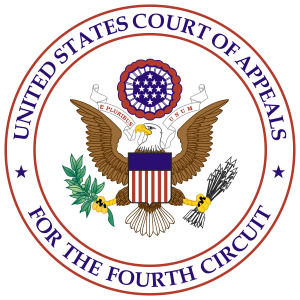May 19, 2021 | Posted By: Hoyer Law Group, PLLC

On June 22, 2020, the United States Court of Appeals for the Fourth Circuit held that a lower court was wrong when it claimed to need more time to decide whether qualified immunity protected two West Virginia officials accused of misusing $42 million in funding. The Fourth Circuit reasoned that the lower court’s desire for more time suggested that qualified immunity protection was a possibility for government officials faced with False Claims Act allegations. The Fourth Circuit responded to that suggestion by definitively stating that there is no possibility of such defense.
Background of Citynet’s Allegations

This case originated from allegations by Citynet—a West Virginia communications service provider—that West Virginia officials Jimmy Gianato, Gale Given, and others, defrauded the government when they obtained federal funding for a broadband improvement program. Specifically, Citynet alleged that Gianato and Given knowingly submitted false documents and statements to obtain funding under the federal Broadband Technology Opportunities Program. Furthermore, Citynet alleged that once the officials obtained the funding, they proceeded to make false claims in drawing down funds under the program.
Gianato and Given filed a motion to dismiss the complaint, asserting that the complaint failed to state a claim on which relief can be granted, and that regardless, they were protected under qualified immunity. The lower court ruled that Citynet had adequately stated a claim but deferred their ruling on whether qualified immunity protected the West Virginia officials to a later date. The lower court reasoned that a decision regarding qualified immunity required further fact-finding to account for the officials’ state of mind in their alleged violation of the False Claims Act.

The Fourth Circuit interpreted this decision as a presumption that government officials may invoke qualified immunity as a defense to a False Claims Act action. The appellate court stated,
[i]n so presuming, the [trial] court skipped the logically antecedent legal question of whether qualified immunity could ever be invoked as a defense to claims of fraud brought under the FCA.
The Fourth Circuit found this question to be “a pure issue of law” that required no factual development.
What is Qualified Immunity?
Qualified immunity is a doctrine that shields state and federal officials from personal liability for monetary damages unless cases involve statutory or constitutional violations. This doctrine attempts to balance two public interest issues:
- the need to hold public officials accountable for their irresponsible use of power, and
- the need to protect officials from harassment or distraction for simply performing their duty.
Qualified immunity does not bar public officials from paying monetary damages though, it simply grants immunity from having to go through a trial and the costs associated with that. Therefore, courts typically resolve qualified immunity issues as early in a case as possible. Additionally, qualified immunity does not prevent government entities as a whole from paying monetary damages resulting from an official’s actions. Qualified immunity is only applicable to the individual working within a government entity and not the entity itself.
How Does This Case Effect Qualified Immunity?
While this decision did not alter any qualified immunity standards, it did reaffirm and clarify who can utilize the defense and for what reasons. This decision is beneficial to whistleblowers because there is now clear case law that states that government officials may not utilize the qualified immunity test when they face allegations of violating the False Claims Act. By forcing officials to incur the costs and exposure associated with a trial, the public can hold them to a higher degree of accountability for the decisions they make in their public position of power. Without whistleblowers bravely shedding light on violations of the False Claims Act, individuals such as Jimmy Gianato and Gale Given can fraudulently claim millions of dollars of taxpayer’s money and possibly go unnoticed.
Despite this decision and many others like it, officials will likely still violate the False Claims Act for a variety of reasons. If you have witnessed conduct or possess information regarding a possible violation of the False Claims Act, do not hesitate to contact our experienced team of whistleblower attorneys for a confidential case evaluation.

